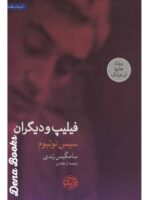اندوه بلژیک
تاب ”اندوه بلژیک” رمانی از سال 1983 است که توسط نویسنده ی بلژیکی ”هوگو کلاوس”(2008-1929) نوشته شده است. این کتاب که مهم ترین اثر ”هوگو کلاوس” و ”مهم ترین رمان هلندی زبان قرن بیستم” محسوب می شود ، یک رمان بر اساس گذشته و تجربیات روحی نویسنده است که به بررسی موضوعاتی پیرامون سیاست و رشد در فلاندر ،در زمان جنگ جهانی دوم می پردازد. کتاب ”اندوه بلژیک” را یکی از رمان های بزرگ اروپا پس از جنگ توصیف کرده می کنند. ”اندوه بلژیک” ، کودکی و جوانی ”لویی سینوئه” ، یک دانش آموز فلمنیایی را بیان می کند ،که در جنگ جهانی دوم در بلژیک که تحت اشغال آلمان بوده ،می زیسته و در منطقه ای به نام کورتریک زندگی می کرده است.
”اندوه بلژیک” داستان ”لویی سینوئه” را در سال 1939 روایت می کند، که یک دانش آموز ده ساله فلمینیایی است و در دنیای کودکانه ی خود با ماجراهای مدرسه و خیال پردازی هایش مشغول است، اما نازی ها به بلژیک حمله می کنند و او یک باره بالغ می شود. ناگهان خانواده اش که مورد احترام همگان بودند، تغییر می کنند. پدر مهربانش از اشغال گران استقبال می کند و مادر دلسوز او ، برای آلمانی ها کار می کند ، او ظاهرا در مرکز خیلی از مسائلی قرار گرفته است که قدرت درکشان را ندارد. به تدریج ، او با صحنه های وحشتناک جنگ و پیامدهای ناشی از آن ، رفتار غیر عادی و غالبا عجیب اقوام و همسایگان متفاوت و آشفتگی درونی خود روبرو می شود و به بهای ناامیدی عمیق به درجه بلوغ می رسد.”اندوه بلژیک” حماسه ای در حماسه ی دیگر می آفریند و اثر یکی از بزرگترین نویسندگان معاصر جهان است. در سال 1994 بر اساس این اثر یک مینی سریال ساخته شد
This long novel is set in Belgium from shortly before the beginning of World War II to shortly after its end. Its aim is fairly clear – to show the hypocrisy and pettiness of the Flemish Belgians during this period, not in a satirical or bitter way (though both aspects have their role to play) but in a relatively straightforward, almost sympathetic manner. It focuses on one village and one family in particular in that village – the Seynaeves. We see things mainly through the eyes of the teenage son, Louis. Louis attends a Catholic school, where he and his close friends have a secret society called the Apostles whose main activities seem to be reading forbidden books. During the course of the book Louis discovers sex, the hypocrisy of adults (particularly but by no means exclusively his parents) and the role of convention in a closed society. Of course, this book is set primarily during the war, when Belgium was occupied by the Germans. However, though the war is hovering in the background, it seems to be more a mild annoyance than a serious disruption to their lives, till almost the very end. The Seynaeves are Flemish nationalists and, therefore, pro-German and anti-French and anti-English. Staf, Louis’ father, is associated with various Flemish pro-German groups while Louis joins the Flemish equivalent of the Hitler Youth. Staf nearly pays the price for his involvement with his life and only gets off because of the intervention and efforts of Constance, his strong-willed though somewhat flaky wife. What makes this novel, however, is the detailed portraits of the various hypocritical Belgians – from the aunt who seduces the young Louis to the grandfather who lives with and sleeps with his wife but won’t talk to her, from the nuns at the school who mock rather than teach to Rock, the priest, who is completely lost as a priest. First and foremost are the complex depictions of Louis and his parents. First is Staf, his father, the printer, who is a Flemish nationalist, who hates Churchill and who is at times irrational and irresponsible (and not just in politics) and who seems not to have his feet on the ground. Constance, his wife, is at times strong-willed, at times weak, and wants to have a good time (and that frequently means adultery though her naive husband does not seem to see what is going on under his very eyes) and she is not too interested in being a wife or mother. Finally there is Louis. This novel is also a bildungsroman of Louis. We follow him from a young teenager, naive about women and adults, with a fertile imagination, unsure of his religious or political views, to a young man who seems set on becoming a writer but also seems set on becoming as hypocritical as his parents and their peers. Not all the characters are hypocritical, as Claus paints some sympathetic portraits – of Vlieghe, Louis’ friend, who kills himself at the end of the book because he was infatuated with Louis and realized that his love was not to be returned, or Laura – does she or does she not have a wig and is it of human hair, who is killed by her husband at the end. This must be one of the most detailed analyses of a close-knitted society in literature. Fun it isn’t but as a dissection of hypocrisy it is a great work.
















